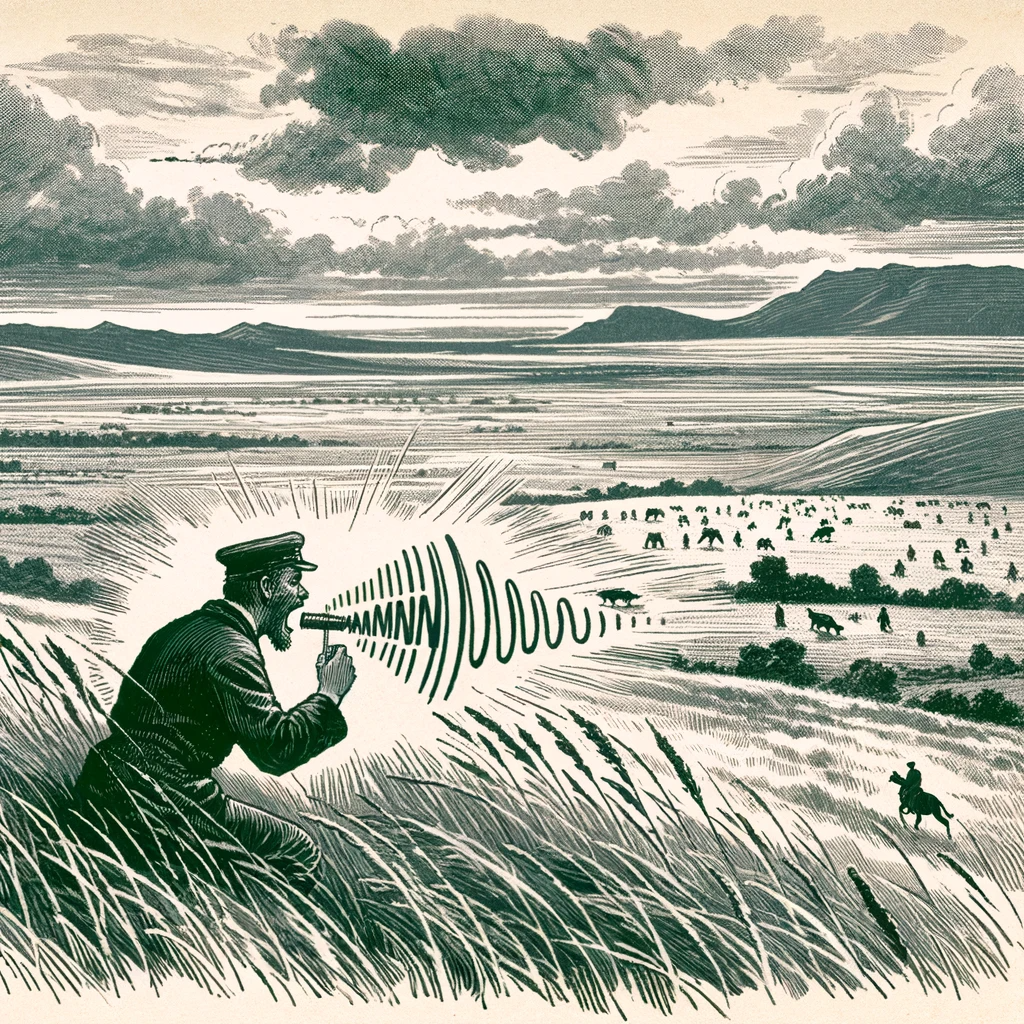Yell
Definition
To shout or cry out loudly, especially due to emotion or pain.
Parts of Speech
- Verb
- Noun
Pronunciation
American English
- IPA Pronunciation: /jɛl/
- Respelling: yel
British English
- IPA Pronunciation: /jɛl/
- Respelling: yel
In both American and British English, "yell" is pronounced with a short "e" sound as in "bed," followed by an "l" sound. The pronunciation is essentially the same in both versions of English.
Etymology
Derived from the Old English "giellan" or "gellan", which means "to shout" or "to scream". This term has Germanic origins, closely related to the Old High German "gellan" and the Gothic "galljan".
Derivatives
- Yeller
- Yelling
- Yellfest
- Yell-leader
- Yellworthy
Synonyms
- Shout
- Scream
- Cry
Antonyms
- Whisper
- Mumble
- Murmur
Usage
The term "yell" is often used in various contexts to describe the act of raising one's voice, typically due to strong emotions like anger, excitement, or fear. In certain sports or activities, yelling can be a way to cheer or motivate. It is also used to get someone's attention, especially from a distance.
Related Terms
- Holler
- Shriek
- Roar
- Voice
- Call out
Detailed Definition
Verb:
- To utter or express with a loud voice, often conveying strong emotion or urgency.
- Example: He had to yell to be heard over the noise of the machinery.
- To cheer or motivate, especially in sports.
- Example: The coach yelled at the team to push harder during the last lap.
Noun:
- A loud cry or shout, often expressing strong emotion.
- Example: From a distance, we heard the yell of a person in distress.
yell



🇨🇳 Mandarin (Simplified Chinese)
- 喊 (hǎn)
- IPA: /xan˨˩˦/
- Respelling: han
- 大叫 (dà jiào)
- IPA: /ta˥˩ t͡ɕjau˥˩/
- Respelling: dah jyao
🇮🇳 Hindi
- चिल्लाना (chillānā)
- IPA: /ʧɪlːaːnaː/
- Respelling: chil-laa-naa
- पुकारना (pukārnā)
- IPA: /pʊkaːrnaː/
- Respelling: poo-kaar-naa
🇪🇸 Spanish
- Gritar
- IPA: /ˈɡɾi.tar/
- Respelling: gree-tar
- Chillar
- IPA: /ʧiˈʝar/
- Respelling: chee-yar
🇫🇷 French
- Crier
- IPA: /kʁi.je/
- Respelling: kree-yeh
- Hurler
- IPA: /yʁ.le/
- Respelling: ur-leh
🇦🇪 Modern Standard Arabic
- صرخ (ṣarakh)
- IPA: /sˤarax/
- Respelling: sa-rakh
- نادى (nādā)
- IPA: /naːdaː/
- Respelling: naa-daa
🇧🇩 Bengali
- চিত্কার (chitkār)
- IPA: /ʧɪt̪kaːr/
- Respelling: chit-kaar
- চেঁচানো (chenchāno)
- IPA: /ʧeŋʧaːno/
- Respelling: chenchaa-no
🇷🇺 Russian
- Кричать (krichat’)
- IPA: /ˈkrʲit͡ɕətʲ/
- Respelling: kree-chat
- Орать (orat’)
- IPA: /ɐˈratʲ/
- Respelling: o-rat
🇵🇹 Portuguese
- Gritar
- IPA: /ɡɾiˈtaɾ/
- Respelling: gree-tahr
- Berrar
- IPA: /bɛˈʁaʁ/
- Respelling: beh-rah-r
🇮🇩 Indonesian
- Berteriak
- IPA: /bər'teriak/
- Respelling: ber-teh-ree-ak
- Menjerit
- IPA: /mən'd͡ʒerit/
- Respelling: men-jeh-rit
🇩🇪 German
- Schreien
- IPA: /ˈʃʁaɪ̯.ən/
- Respelling: shry-en
- Brüllen
- IPA: /ˈbʁʏlən/
- Respelling: brue-llen
🇯🇵 Japanese
- 叫ぶ (sakebu)
- IPA: /sakebɯ/
- Respelling: sah-ke-boo
- 大声で言う (ōgoedeiu)
- IPA: /oːɡoedeiɯ/
- Respelling: oh-goe-deh-ee-oo
🇻🇳 Vietnamese
- Hét
- IPA: /hɛt̚˨˩/
- Respelling: het
- La hét
- IPA: /la˧ hɛt̚˨˩/
- Respelling: lah het
🇰🇷 Korean
- 소리치다 (sorichida)
- IPA: /so.ɾi.t͡ɕʰi.da/
- Respelling: so-ree-chee-dah
- 외치다 (oechida)
- IPA: /we.t͡ɕʰi.da/
- Respelling: way-chee-dah
🇹🇷 Turkish
- Bağırmak
- IPA: /baːɯrmak/
- Respelling: bah-uh-rmak
- Çığlık atmak
- IPA: /ʧɯɰlɯk atmak/
- Respelling: chee-uh-luhk at-mak
🇵🇰 Urdu
- چلانا (chilānā)
- IPA: /ʧɪlaːnaː/
- Respelling: chi-laa-naa
- پکارنا (pukārnā)
- IPA: /pʊkaːrnaː/
- Respelling: poo-kaar-naa





